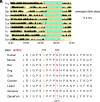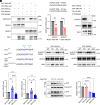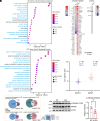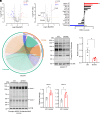The SIK3-N783Y mutation is associated with the human natural short sleep trait
- PMID: 40324078
- PMCID: PMC12088394
- DOI: 10.1073/pnas.2500356122
The SIK3-N783Y mutation is associated with the human natural short sleep trait
Abstract
Sleep is an essential component of our daily life. A mutation in human salt induced kinase 3 (hSIK3), which is critical for regulating sleep duration and depth in rodents, is associated with natural short sleep (NSS), a condition characterized by reduced daily sleep duration in human subjects. This NSS hSIK3-N783Y mutation results in diminished kinase activity in vitro. In a mouse model, the presence of the NSS hSIK3-N783Y mutation leads to a decrease in sleep time and an increase in electroencephalogram delta power. At the phosphoproteomic level, the SIK3-N783Y mutation induces substantial changes predominantly at synaptic sites. Bioinformatic analysis has identified several sleep-related kinase alterations triggered by the SIK3-N783Y mutation, including changes in protein kinase A and mitogen-activated protein kinase. These findings underscore the conserved function of SIK3 as a critical gene in human sleep regulation and provide insights into the kinase regulatory network governing sleep.
Keywords: SIK3; kinase; natural short sleep; sleep need.
Conflict of interest statement
Competing interests statement:The authors declare no competing interest.
Figures






References
MeSH terms
Substances
Grants and funding
LinkOut - more resources
Full Text Sources

